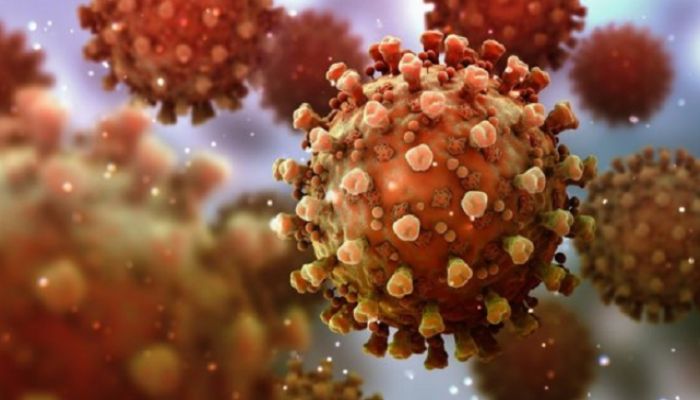
Desk Report
Publish: 28 Apr 2020, 10:44 pm

Can you catch the coronavirus again? Why are some more sick than others? Is it going to come back every winter? Is vaccination working? Can exemption passports bring any of us back to work? How will we treat the virus in the long term?
The immune response is at the center of some of the more significant coronavirus issues.
The problem is we know very little.
How do you become immune to coronavirus?
Our immune system is the body's defence against infection and it comes in two parts.
The first is also able to take action as soon as some external invader is found in the body. It is recognized as an innate immune response that involves the release of chemicals that induce inflammation which white blood cells that can destroy contaminated cells.
However, this method is not unique to coronavirus. It won't know, so it won't grant you immunity to the coronavirus.
You need an adaptive immune response instead. This involves cells that generate specific antibodies that can bind to the virus to protect it, and T cells that can only fight the virus-infected cells called the cellular answer.
This takes time-studies suggest that it takes about 10 days to start making antibodies that can target the coronavirus and that the diseased patients develop the strongest immune response.
If the adaptive immune response is powerful enough, it may leave a lingering impression of the infection that will provide defense in the future.
It is not known if people who have only mild symptoms, or none at all, will develop a sufficient adaptive immune response.
How long does immunity last?
The immune system's memory is rather like our own - it remembers some infections clearly, but has a habit of forgetting others.
Measles is particularly memorable-one bout will offer life-long immunity (as the weaker form of the MMR vaccine does). There are, though, a number of those who are fairly forgettable. Children can get RSV (respiratory syncytial virus) multiple times in the same winter.
The new coronavirus, called Sars-CoV-2, has not been around long enough to know how long immunity lasts, but there are six other human coronaviruses that can give a clue.
Four of them develop signs of common cold and tolerance is short-lived. Research have demonstrated that certain patients can be reinfected within a year.
The common cold, though, is usually moderate. There are two more troublesome coronaviruses-those that cause Severe Acute Respiratory Syndrome (Sars) and Middle East Respiratory Syndrome (Mers)-in which antibodies were detected a few years later.
"The question is not whether you become immune, it's how long for," said Paul Hunter, a professor in medicine at the University of East Anglia.
He added: "It almost certainly will not last for life.
"Based on antibody studies in Sars it is possible that immunity will only last about one to two years, though this is not yet known for certain."
However, even if you are not completely immune it is possible a second infection would not be as severe.
Have people caught it twice?
There have been reports of people appearing to have several coronavirus infections in a short period.
Some also claimed that individuals are sometimes poisoned twice. Another school of thought is that the virus goes into the body's stealth mode before it is reactivated.
Nevertheless, the medical opinion suggests that research is a case of wrongly convincing people that they were safe from the infection.
Nobody was deliberately reinfected with the virus to assess immunity, but a pair of macaque rhesus monkeys did.
They were infected twice, once to build up an immune response and then a second time three weeks later. Those very limited experiments showed they did not develop symptoms again after such quick reinfection.
If I have antibodies am I immune?
This is not guaranteed and that is why the World Health Organization is nervous about countries using immunity passports as a way out of lockdown.
The idea is if you pass the antibody test then you are safe to go back to work. This would be particularly valuable for staff in care homes or hospitals who come into contact with those at risk of developing severe symptoms.
Even though you're going to find certain antibodies in nearly any individual, not all of them are similar. Neutralizing antibodies are those that stick to the coronavirus and are able to stop it from infecting other cells. A analysis of 175 patients treated in China found that 30% had very small rates of such neutralizing antibodies.
That is why the World Health Organization says "that cellular immunity [the other part of the adaptive response] may also be critical for recovery".
Another issue is that just because you might be protected by your antibodies, it doesn't mean you cannot still harbor the virus and pass it onto others.
Why does immunity matter?
It matters for obvious personal health reasons and whether you will get Covid-19 multiple times and how often.
Immunity is also likely to impact how lethal the virus is. If people maintain any, however weak, defense, it would render the disease less harmful.
Understanding immunity will help to alleviate the lockout because it is obvious who is not at risk of catching or transmitting the virus.
If it is very difficult to produce long-term immunity, then it could make a vaccine harder to develop. Or it may change how the vaccine needs to be used - will it be a once a lifetime or once a year like the flu shot.
And the duration of immunity, whether by infection or immunization, will tell us how likely we are to be able to stop the virus spreading.
These are all big questions we still lack answers to.
Source: BBC
Subscribe Shampratik Deshkal Youtube Channel
© 2024 Shampratik Deshkal All Rights Reserved. Design & Developed By Root Soft Bangladesh